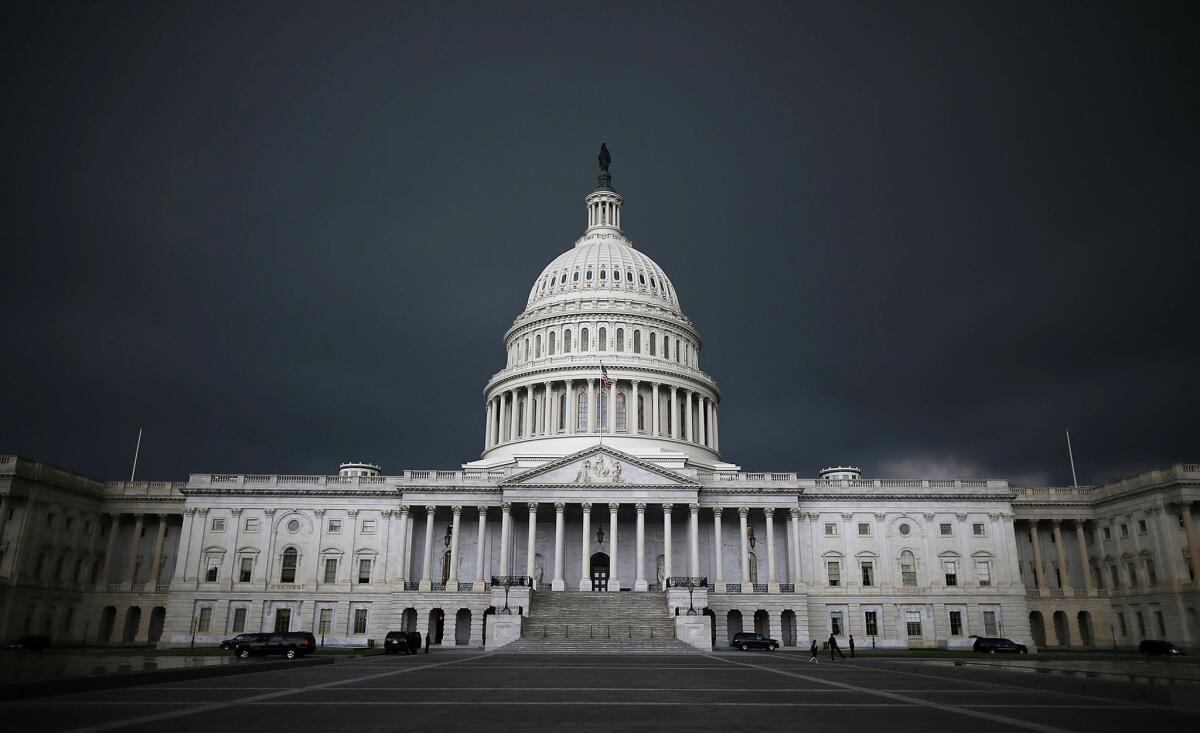Why we’ve quit on Congress, and how it might win us back

Last August, public approval of Congress fell to an all-time low: 10%. Even for an institution that has, in the last 40 years, rarely enjoyed approval above 60%, the statistic set a pretty low bar.
So when a Gallup poll released Wednesday showed Congress’ approval rating at 15%, it was easy to think things were looking up (or at least trending up). Actually, though, the 15% is 2 percentage points lower than last month and a far cry from Congress’ 21% approval rating in October 2012 (not that 21% is ideal either).
There are a lot of reasons why Congress is where it is.
One, of course, is that the 113th Congress is perceived as a “do-nothing” body, as Dashiell Bennett noted in the Atlantic Wire this month:
The 112th, which ended its last session on January 3, passed 220 laws, the fewest of any Congress since they started keep statistics, and more than 100 fewer than the previous record low. Yet, six months into its term the 113th Congress is actually on pace to pass even fewer laws than that. Just 15 bills have become law this year, compared to 23 over the same period in 2011.
It’s worth mentioning that among the bills Congress did not pass was highly popular bipartisan legislation to strengthen background checks on firearms purchasers. The Senate failed to muster the 60 votes required to stave off a filibuster on the bill even while the families of the Newtown, Conn., tragedy were in attendance. That’s despite the fact that it had support from about 90% of Democrat and 84% of Republican and independent voters.
There was also that time in January when the House refused to take up a relief bill for victims of Superstorm Sandy, then went on vacation.
Speaking of vacation, that might be another problem Congress has had in terms of its perception with the public. On that one, I’ll defer to a post from my colleague Paul Whitefield about taking Mondays off.
But here’s a snippet: “You think Wal-Mart puts up with people missing work because it’s a Monday? Or the cellphone store? The supermarket?”
Given this short (and very incomplete) list, it’s easy to see why Congress has been stamped with such low approval.
Fortunately, there is not much further Congress can fall, in terms of public approval. So, really, there is only one place to go -- up. It’s just a matter of how quickly.
The news that Congress compromised Tuesday to approve presidential appointments is a promising start. The Senate GOP’s use of the filibuster had rendered the National Labor Relations Board essentially ineffective, according to a story in the New Republic. The agreement allows for the confirmation of NLRB appointees, giving the agency a full board for the first time since 2003. The deal also paves the way for confirmation of several other Obama appointees, including his choices to run the Environmental Protection Agency and the Labor Department. And after two years of vowing to prevent the confirmation of a Consumer Financial Protection Bureau leader without changes to the agency, the GOP senators came on board to approve Richard Cordray on Tuesday, 66 to 34.
On Wednesday, Politico reported that a bipartisan group of senators and the White House had reached a compromise on interest rates for some subsidized student loans. That is, after they failed to avoid a rate increase by their July 1 deadline.
Still, getting there late is better than not getting there at all.
ALSO:
Rolling Stone nails it with its Dzhokhar Tsarnaev cover
Best financial advice for McDonald’s employees: Leave
Will WikiLeaks movie ‘The Fifth Estate’ turn Assange into a hero?
Follow Daniel Rothberg on Twitter: @danielrothberg
More to Read
A cure for the common opinion
Get thought-provoking perspectives with our weekly newsletter.
You may occasionally receive promotional content from the Los Angeles Times.






